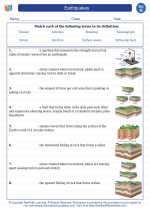Ecosystem
An ecosystem is a community of living organisms (plants, animals, and microorganisms) in conjunction with the nonliving components of their environment (such as air, water, and mineral soil), interacting as a system. These components are linked together through nutrient cycles and energy flows.
Components of an Ecosystem
- Abiotic Factors: Non-living components such as water, sunlight, temperature, soil, and air.
- Biotic Factors: Living components including plants, animals, fungi, and microorganisms.
Types of Ecosystems
Ecosystems can be classified into terrestrial (land-based) and aquatic (water-based) ecosystems. Terrestrial ecosystems include forests, grasslands, deserts, and tundra, while aquatic ecosystems encompass freshwater (lakes, rivers) and marine (oceans, coral reefs) environments.
Energy Flow in Ecosystems
Energy enters the ecosystem through sunlight and is converted into chemical energy by photosynthetic organisms such as plants. This energy is then transferred through the ecosystem as organisms consume one another, with the energy being passed along the food chain.
Nutrient Cycling in Ecosystems
Nutrients such as carbon, nitrogen, and phosphorus are cycled through the ecosystem. Decomposers play a crucial role in breaking down organic matter and returning nutrients to the soil, completing the nutrient cycle.
Human Impact on Ecosystems
Human activities such as deforestation, pollution, overfishing, and climate change have a significant impact on ecosystems, leading to habitat destruction and loss of biodiversity.
Study Guide
- Define an ecosystem and distinguish between abiotic and biotic factors.
- Describe the different types of ecosystems and provide examples of each.
- Explain the process of energy flow in an ecosystem and illustrate it using a food chain or food web.
- Discuss the importance of nutrient cycling in sustaining an ecosystem.
- Analyze the human impact on ecosystems and propose solutions to mitigate these effects.
[Ecosystem] Related Worksheets and Study Guides:
.◂Science Worksheets and Study Guides Eighth Grade. Earthquakes
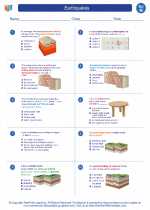
 Worksheet/Answer key
Worksheet/Answer key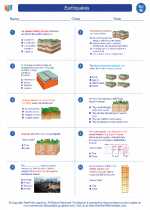
 Worksheet/Answer key
Worksheet/Answer key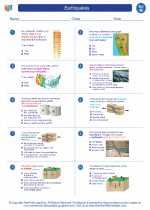
 Vocabulary/Answer key
Vocabulary/Answer key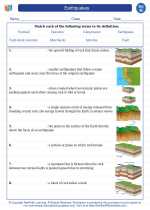
 Vocabulary/Answer key
Vocabulary/Answer key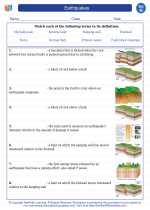
 Vocabulary/Answer key
Vocabulary/Answer key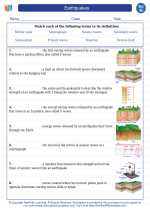
 Vocabulary/Answer key
Vocabulary/Answer key